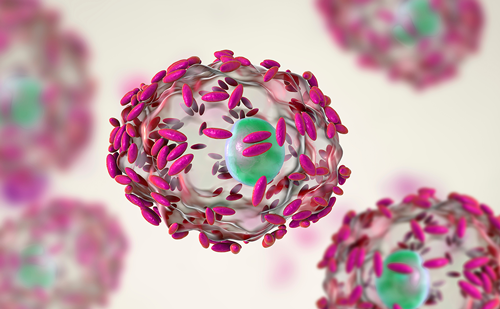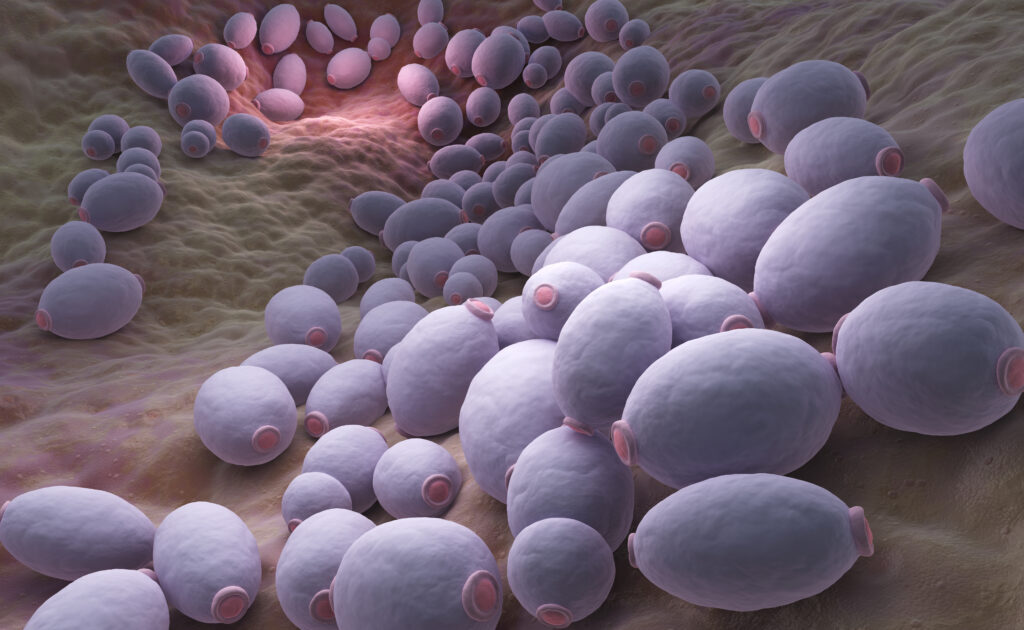Fungal Infections
An Introduction to Fungal Infections

Physician burnout is at a critical point. In this episode, Nicky speaks with Dr Alfred Atanda about why so many physicians are burning out and what can be done to change the trend. From personal experience to system-wide solutions, Dr Atanda shares valuable insights on improving physician well-being and building a more effective healthcare culture.

The ESCMID Global Congress 2025 brought together world-leading researchers and clinicians to present practice-changing updates in infectious disease management. This article distils five critical insights from interviews and landmark trial results, covering innovations in antimicrobial therapy, fungal infections, resistance surveillance and ...

In this episode, we explore the future of continuing medical education (CME) with the team behind touchIME. Hannah Fisher and Matthew Goodwin share insights into global and US trends, the importance of patient inclusivity and how educational outcomes are evolving to better measure the direct impact of learning on clinical practice and patient care.

Dr Simon Feys discusses his award-winning research on viral-associated pulmonary aspergillosis (VAPA) in critically ill patients, highlighting key insights into its pathophysiology, diagnostic challenges, and treatment gaps. His work combines clinical expertise with multi-omics analysis to improve understanding, detection, and management of this often-overlooked but potentially deadly fungal superinfection.

Jon Salmanton-García discusses the challenges of diagnosing and treating invasive fungal infections in low- and middle-income countries, shares insights from studies in Peru and Honduras, and highlights key research and overlooked findings from ESCMID Global 2025.

Dr Amesika Nyaku and the touchINFECTIOUS DISEASES team are thrilled to welcome a new editorial board member, Dr Jon Salmanton-García (University of Cologne, Germany), specializing in infectious diseases in immunocompromised patients, with a particular focus on respiratory viral infections ...

Welcome to the latest edition of touchREVIEWS in Infectious Diseases, where we continue our mission to deliver insightful, cutting-edge perspectives in infectious disease diagnosis and management. This issue offers an array of topics spanning diagnostics, service delivery innovations and preventive ...

Vaginal symptoms are one of the most common reasons for women accessing acute healthcare in the USA.1 Vaginitis is most commonly evaluated based on clinical observations, including assessment of discharge characteristics, vaginal pH and, in some settings, microscopic examination of ...

Article highlights Erythrasma is a common chronic superficial cutaneous bacterial infection caused by Corynebacterium minutissimum when conditions are conducive. Corynebacterium minutissimum produces coproporphyrin III (a phosphor) that emits a coral pink fluorescence under Wood’s lamp and helps confirm the ...

Vulnerable immunocompromised individuals are at risk of opportunistic infections by invasive molds, and available antifungal treatments for these invasive infections are currently restricted. Therefore, a combination of therapies has been proposed as a potential strategy to enhance the effectiveness of ...

Antifungal resistance is an increasing concern in the treatment of fungal infections, especially when there are already limited options in the treatment paradigm. It was a pleasure to talk with Editorial Board member Prof. Mahmoud Ghannoum (Integrated Microbiome Core and ...

Editorial Board member Prof. Mahmoud Ghannoum (Integrated Microbiome Core and Centre for Medical Mycology, Cleveland, OH, USA) joins us to discuss ECCMID 2023 highlights in fungal infections, antifungal therapies, diagnostic approaches, and specific case reports that help advise clinicians in clinical ...

Intravenous amphotericin B is a mainstay of treatment in cryptococcal meningitis, in this phase 2 study the efficacy and safety of amphotericin B, a novel, orally absorbed, less-toxic formulation is investigated. It was a pleasure to talk with Prof. David Boulware (...

The phase 3 ReSTORE trial (NCT03667690) was a randomized, double-blind, non-inferiority study comparing the efficacy and safety of rezafungin with caspofungin in the treatment of candidemia and/or invasive candidiasis. touchINFECTIOUS DISEASES had the opportunity to speak with Dr. Alex Soriano (...

Fungal infections pose a high risk in patients with a weakened immune system, despite the development of new antifungal therapeutics, antifungal resistance is an increasing concern when trying to treat patients. We were delighted to catch up with Prof. David ...

Chronic pulmonary aspergillosis (CPA) is a complicated respiratory disease associated with high morbidity and mortality rates. This overlooked disease often comes with delayed diagnosis and treatment, demonstrating a need for increased awareness and education in this area. We met with ...

ReSTORE (NCT03667690) was a phase 3, randomised, double-blind, non-inferiority trial comparing the efficacy and safety of rezafungin and caspofungin in candidaemia and invasive candidiasis. We were delighted to talk with Prof. George Thompson (University of California, Davis, School of Medicine, Sacramento, ...

Rezafungin, an echinocandin antifungal, was recently investigated in the phase 2 STRIVE (NCT02734862) and phase 3 ReSTORE (NCT03667690) trials in candidaemia/invasive candidiasis. In this interview with Prof. George Thompson (University of California, Davis, School of Medicine, Sacramento, CA, USA) we talk ...
Latest articles videos and clinical updates - straight to your inbox
Log into your Touch Account
Earn and track your CME credits on the go, save articles for later, and follow the latest congress coverage.
Register now for FREE Access
Register for free to hear about the latest expert-led education, peer-reviewed articles, conference highlights, and innovative CME activities.
Sign up with an Email
Or use a Social Account.
This Functionality is for
Members Only
Explore the latest in medical education and stay current in your field. Create a free account to track your learning.

